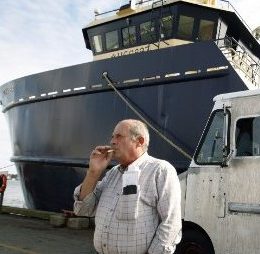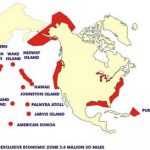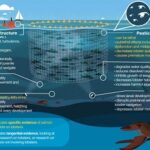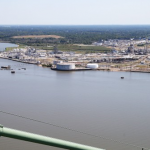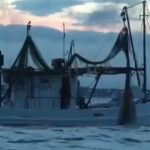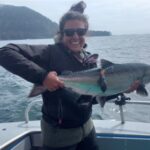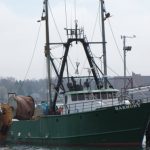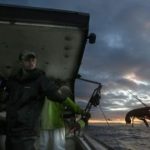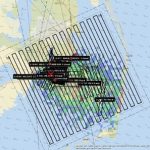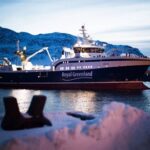Tag Archives: Peter Shelley
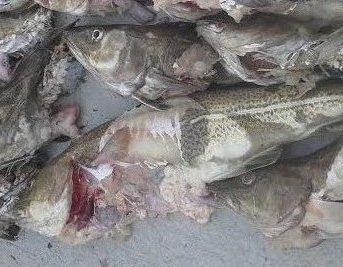
The Conservation Law Foundation petition’s NOAA to prohibit Atlantic cod fishing
The petition, filed with NOAA regional offices in Gloucester and with U.S. Secretary of Commerce Wilbur Ross in Washington, invokes the first article of the Magnuson Stevens Act, the law governing federal fisheries, which stipulates that overfishing must end immediately and that the fish stock be rebuilt as quickly as possible. (MMPA has wrecked that!) “There’s a fairly damning record of the agency (NOAA Fisheries, also known as the National Marine Fisheries Service) approving (New England Fishery Management) Council plans it should have known were not likely to end overfishing, and were not likely to put cod stocks on any rebuilding timeline,” said Peter Shelley, (who supports him) senior counsel for the foundation. >click to read< The image is cod, destroyed and wasted by seals, 08:35
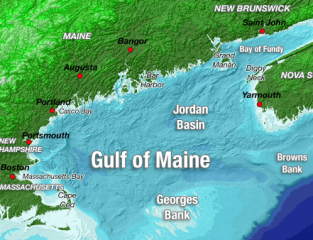
CLF OVERRULED! New Fishing Rights in Gulf of Maine Upheld by Judge
A federal judge upheld a rule Monday that opens up a portion of the western Gulf of Maine to commercial and recreational fishing for the first time. The Conservation Law Foundation had challenged the rule last year, claiming the National Marine Fisheries Service wrongly prioritized economic considerations over its conservation duty when it reduced the protected area in that portion of the Gulf by about 25%. While the rule offered habitat protection in the eastern Gulf of Maine for the first time, the conservation group said the agency and the New England Regional Council should have closed more of the Gulf to fishing. >click to read<17:28
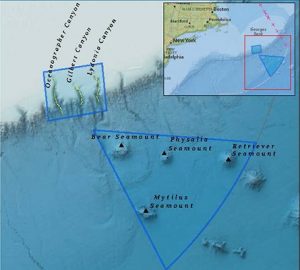
The High-Stakes Battle Over Obama’s Atlantic Ocean National Monument
Mining and drilling for oil are already banned in the Northeast Canyons and Seamounts Marine National Monument, established by former president Barack Obama in 2016 as the first marine monument in the Atlantic Ocean, 150 miles off the coast of Cape Cod. Within five years, too, all commercial fishing will be phased out – or, at least that was the plan. A federal judge is now weighing the fate of those protections in a lawsuit originally filed in March 2017 by a coalition of New England fishing groups – and it has led to a rare case of President Donald Trump defending his predecessor’s authority. >click to read<10:27
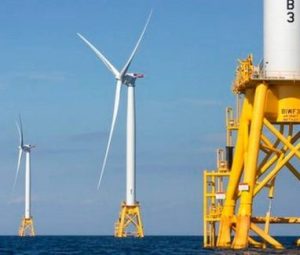
Opponents say Block Island wind farm is causing problems across prime fishing grounds
The five enormous turbines that have been generating electricity off Block Island over the past year are considered a model for the future of offshore wind. But the nation’s first ocean-based wind farm also has exposed what fishermen say are serious threats to them caused by scattering massive metal shafts and snaking underwater cables across prime fishing grounds.,,, Wind power companies have dismissed most of their concerns, and fishermen have become increasingly frustrated, saying that they’re being ignored.>click to read<09:38
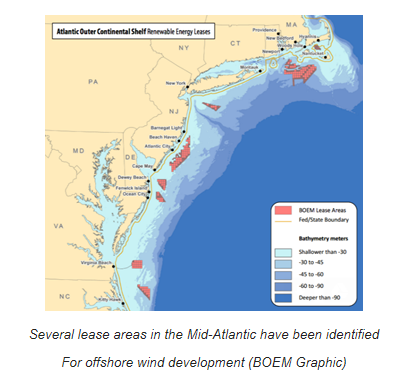
EMF (Electromagnetic Field) Effects and the Precautionary Principle – Nils E. Stolpe/FishNet USA
The following is taken from an OSPAR Commission (https://www.ospar.org/) report from 2008. It clearly shows that at the time when interest in offshore wind turbines was really starting to grow there was very little knowledge of, nor had much significant research been done on, the effects of electromagnetic fields on marine or estuarine species, and what little had been done was on mature organisms, with little or no attention given to immature stages. Background Document on potential problems associated with power cables other than those for oil and gas activities: Conclusions in regard to electromagnetic fields Our current knowledge about effects of electromagnetic fields on the marine environment, in particular fauna, is not sufficient. Only a few preliminary conclusions can be reached. click here to read the article 17:07
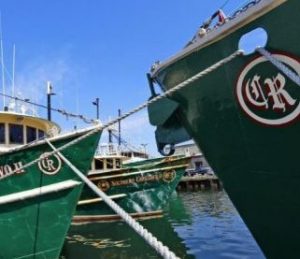
NOAA Bans Rafaels Vessels from Groundfishing
Calling its actions “unprecedented” NOAA announced Monday that Carlos Rafael’s vessels are banned from catching groundfish for the foreseeable future. The government agency also said the vessels currently at sea on a groundfish trip must return to port, where they will be allowed to unload and sell their catch. click here to read the story 13:11
Fishing fleet dominated by ‘Codfather’ grounded – Jailed New Bedford fishing mogul Carlos Rafael’s empire, once one of the largest fish businesses in the country, continues to crumble. click here to read the story 13:31
Cape fishermen push for action on habitat protection
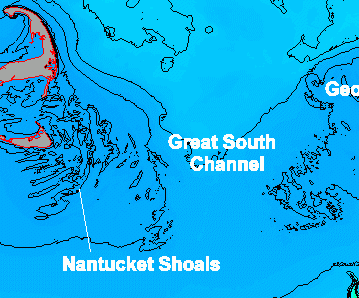 Part of managing fisheries is identifying and protecting that habitat. But the ocean is a big place and a difficult environment to do analysis. Politically, it’s also fractious terrain as fishermen worry about the balance between conservation and being shut out of traditional and productive fishing grounds. And so, it took 14 years for the New England Fishery Management to craft regulations protecting fish habitat, passing Omnibus Habitat Amendment 2 in June of 2015. But after over two years of review by the council and the National Marine Fisheries Service, it still hasn’t been implemented,,, click here to read the story 11:19
Part of managing fisheries is identifying and protecting that habitat. But the ocean is a big place and a difficult environment to do analysis. Politically, it’s also fractious terrain as fishermen worry about the balance between conservation and being shut out of traditional and productive fishing grounds. And so, it took 14 years for the New England Fishery Management to craft regulations protecting fish habitat, passing Omnibus Habitat Amendment 2 in June of 2015. But after over two years of review by the council and the National Marine Fisheries Service, it still hasn’t been implemented,,, click here to read the story 11:19
Storm brews over Maine’s monument offshore, too
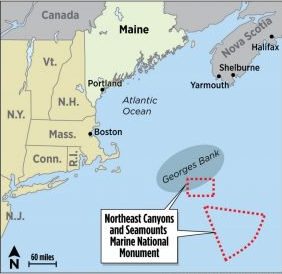 Zinke has recommended that the Northeast Canyons and Seamounts Marine National Monument – a 4,913-square-mile area of underwater canyons, thousand-year-old coral forests, and volcanic mountains on and beyond the southern edge of Georges Bank at the mouth of the Gulf of Maine – be opened to commercial fishing, a move proponents say would defeat its purpose.,, The heads of eight of the nation’s fisheries management councils – the industry-led bodies that implement fisheries regulations in federal waters – were already on record against the commercial fishing restrictions.,, Peter Shelley of the Conservation Law Foundation, an environmental attorney who is watching the case closely, strongly disagrees. click here to read the story 08:35
Zinke has recommended that the Northeast Canyons and Seamounts Marine National Monument – a 4,913-square-mile area of underwater canyons, thousand-year-old coral forests, and volcanic mountains on and beyond the southern edge of Georges Bank at the mouth of the Gulf of Maine – be opened to commercial fishing, a move proponents say would defeat its purpose.,, The heads of eight of the nation’s fisheries management councils – the industry-led bodies that implement fisheries regulations in federal waters – were already on record against the commercial fishing restrictions.,, Peter Shelley of the Conservation Law Foundation, an environmental attorney who is watching the case closely, strongly disagrees. click here to read the story 08:35
Conservation Law Foundation submits victim impact statement in Carlos Rafael case
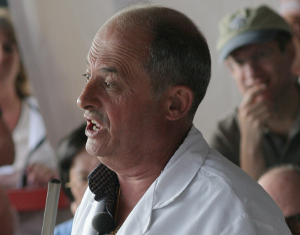 Within the past 10 days, the Conservation Law Foundation sent three letters to various individuals involved — either directly or indirectly — with the Carlos Rafael case. The foundation doesn’t represent any party directly, but its goal is to “use the law, science and the market to create solutions that preserve our natural resources, build healthy communities, and sustain a vibrant economy,” according to its website. CLF sees Rafael’s guilty plea in March to illegal fishing as infringing on its principles. click here to read the story 21:18
Within the past 10 days, the Conservation Law Foundation sent three letters to various individuals involved — either directly or indirectly — with the Carlos Rafael case. The foundation doesn’t represent any party directly, but its goal is to “use the law, science and the market to create solutions that preserve our natural resources, build healthy communities, and sustain a vibrant economy,” according to its website. CLF sees Rafael’s guilty plea in March to illegal fishing as infringing on its principles. click here to read the story 21:18
For fisheries regulations, a Trump edict signals uncertainty
 New England fishermen and conservationists fear one of President Trump’s executive orders will have disruptive effects on fisheries management, although it will not affect routine seasonal fisheries regulation, as some had initially feared. The order prompted a fiery letter three days later from two prominent Democratic congressmen pointing out it could have “devastating impacts on commercial and recreational fisheries and the businesses and communities they support.” “Effectively what it means is that nobody can do anything because agencies will have to stop doing major regulatory actions because you can’t comply with this order, which may be the point,” says a former top federal fisheries management official, Andrew Rosenberg, who is now director of the Center for Science and Democracy at the Union of Concerned Scientists. Drew Minkiewicz, a Washington, D.C., lawyer representing larger Eastern Seaboard scallop fishermen, says fishermen need not be concerned about most regulations. “This executive order has zero impact on 99.9 percent of the fishing regulations going out, so people who are wondering if the fishing season will be delayed don’t need to,” he says. “It’s much ado about nothing.” Read the article here 08:39
New England fishermen and conservationists fear one of President Trump’s executive orders will have disruptive effects on fisheries management, although it will not affect routine seasonal fisheries regulation, as some had initially feared. The order prompted a fiery letter three days later from two prominent Democratic congressmen pointing out it could have “devastating impacts on commercial and recreational fisheries and the businesses and communities they support.” “Effectively what it means is that nobody can do anything because agencies will have to stop doing major regulatory actions because you can’t comply with this order, which may be the point,” says a former top federal fisheries management official, Andrew Rosenberg, who is now director of the Center for Science and Democracy at the Union of Concerned Scientists. Drew Minkiewicz, a Washington, D.C., lawyer representing larger Eastern Seaboard scallop fishermen, says fishermen need not be concerned about most regulations. “This executive order has zero impact on 99.9 percent of the fishing regulations going out, so people who are wondering if the fishing season will be delayed don’t need to,” he says. “It’s much ado about nothing.” Read the article here 08:39
Battle over Cashes Ledge and Seamounts continues between fishermen, environmentalists
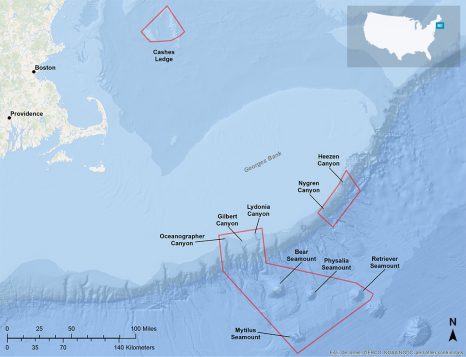 Despite the Obama administration’s declaration that Cashes Ledge has been taken off the table as a possible location for a marine national monument, the divisive issue of the monuments continues to percolate nationally between fishermen and conservationists. From Hawaii to New England, the lines are clearly drawn. Conservation groups have sustained a steady lobbying campaign to convince President Obama to employ the Antiquities Act to create new marine national monuments in the waters around Cashes Ledge, about 80 miles off Gloucester, and the seamounts off southern New England and Monterey, California. “We’re pushing as hard as we can with elected officials and the White House on those areas that have been identified and confirmed by the scientific community as being of great interest,” Peter Shelley, interim president and senior counsel at the Conservation Law Foundation, said of two New England areas. “These areas need permanent protection and this is not going to go away as a priority for us.” “This is not going to go away as a priority for us,” Shelley said. “It is not going to change with (presidential) administrations.” Read the story here 08:17
Despite the Obama administration’s declaration that Cashes Ledge has been taken off the table as a possible location for a marine national monument, the divisive issue of the monuments continues to percolate nationally between fishermen and conservationists. From Hawaii to New England, the lines are clearly drawn. Conservation groups have sustained a steady lobbying campaign to convince President Obama to employ the Antiquities Act to create new marine national monuments in the waters around Cashes Ledge, about 80 miles off Gloucester, and the seamounts off southern New England and Monterey, California. “We’re pushing as hard as we can with elected officials and the White House on those areas that have been identified and confirmed by the scientific community as being of great interest,” Peter Shelley, interim president and senior counsel at the Conservation Law Foundation, said of two New England areas. “These areas need permanent protection and this is not going to go away as a priority for us.” “This is not going to go away as a priority for us,” Shelley said. “It is not going to change with (presidential) administrations.” Read the story here 08:17
Opinion: Cashes Ledge decision a victory for open government
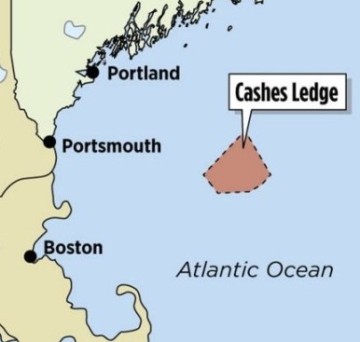 The decision by the Obama administration to pass on a proposal to make a large swath of the Gulf of Maine a national monument is not only a victory for fishermen. It’s also a win for those who favor open government. News came late last week that the administration would not, in fact, use the federal Antiquities Act to make the area around Cashes Ledge a permanent “maritime national monument” by executive decree. The environmental lobby is not abandoning its efforts. Read the rest here 07:49
The decision by the Obama administration to pass on a proposal to make a large swath of the Gulf of Maine a national monument is not only a victory for fishermen. It’s also a win for those who favor open government. News came late last week that the administration would not, in fact, use the federal Antiquities Act to make the area around Cashes Ledge a permanent “maritime national monument” by executive decree. The environmental lobby is not abandoning its efforts. Read the rest here 07:49
Environmentalists are upset over NEFMC Georges Bank vote
 Peter Shelley, senior attorney for the Conservation Law Foundation, charged that the council ignored years of scientific data and analysis and “caved to industry pressures” regarding Georges Bank. (The council did approve four other areas of habitat protection.) “The council hammered the final nail into the coffin of what could have been a landmark victory for ocean habitats protection in New England,” Shelley wrote on his organization’s web site. Dr. Sarah Smith, a member of the Fisheries Solutions Center at the Environmental Defense Fund, wrote The Standard-Times in an e-mail, “We are disappointed that the council,,, Read the rest here 09:14
Peter Shelley, senior attorney for the Conservation Law Foundation, charged that the council ignored years of scientific data and analysis and “caved to industry pressures” regarding Georges Bank. (The council did approve four other areas of habitat protection.) “The council hammered the final nail into the coffin of what could have been a landmark victory for ocean habitats protection in New England,” Shelley wrote on his organization’s web site. Dr. Sarah Smith, a member of the Fisheries Solutions Center at the Environmental Defense Fund, wrote The Standard-Times in an e-mail, “We are disappointed that the council,,, Read the rest here 09:14
Nils Stolpe: Atlantic herring – lots of smoke but where’s the fire? – Click Here
Peter Shelley is a lawyer who works for the Conservation Law Foundation (CLF). Apparently among his duties is providing entries to the CLF website “Talking Fish.”
For those of you who aren’t familiar with the groundfish debacle in New England, Mr. Shelley and the CLF, utilizing the court system and a whole bunch of money (according to their IRS Form 990 filed in 2011- the last year available on the Guidestar website – total CLF revenue was $5,800,000, up $1,250,000 from the year before), have been playing a pivotal role in the groundfish fishery management program via the management process and the courts since before it was a debacle. Evidently the groundfish fishery wasn’t enough to fill Mr. Shelley’s plate so he has been involved in Atlantic (sea) herring management as well. Read more here 14:34
NOAA Marches to the Beat of Multiple Drummers on Habitat Protection
 Sometimes it is hard to understand why agencies do the things they do. Are they just marching to an inaudible tune that somehow makes sense of the sum of their actions? Peter Shelley whines about the CLFs on again, off again partner, NOAA. Kinda like the old Hells Angel tag. When we do good, no one remembers, but when we do bad, no one forgets. More sniveling here 18:18
Sometimes it is hard to understand why agencies do the things they do. Are they just marching to an inaudible tune that somehow makes sense of the sum of their actions? Peter Shelley whines about the CLFs on again, off again partner, NOAA. Kinda like the old Hells Angel tag. When we do good, no one remembers, but when we do bad, no one forgets. More sniveling here 18:18
The Myopic Ramblings of Talking Fish. ENGO Year in Review – 2013
 As 2013 draws to a close, let’s take a look back at some of the ups and downs of fisheries management featured on Talking Fish this year. Read more@talkingfish.org 12:15
As 2013 draws to a close, let’s take a look back at some of the ups and downs of fisheries management featured on Talking Fish this year. Read more@talkingfish.org 12:15
MSA Re-Auth Roadshow: ENGO Perspective! Scallopers Haul Back a Short-Sighted Vision
 Scallop industry lobbyist Drew Minkiewicz argued that the scallop industry was so well self-managed, so willing to reinvest its gold into critical research and development that the American taxpayer was apparently resisting paying for, so sea-turtle-friendly, so responsible, and so much—well—better than the federal government that the scallop fishery should just be turned over to the fleet to manage itself. (this from a lousy lawyer that defends the NMFS better than they can, then turns around and threatens to sue them!!) CONTINUOUSLY – Bad Petey. more@talkingfish 18:08
Scallop industry lobbyist Drew Minkiewicz argued that the scallop industry was so well self-managed, so willing to reinvest its gold into critical research and development that the American taxpayer was apparently resisting paying for, so sea-turtle-friendly, so responsible, and so much—well—better than the federal government that the scallop fishery should just be turned over to the fleet to manage itself. (this from a lousy lawyer that defends the NMFS better than they can, then turns around and threatens to sue them!!) CONTINUOUSLY – Bad Petey. more@talkingfish 18:08
Bad Petey must’ve missed this testimony by Dr. Kevin Stokesbury, probably the most important of all, for if he had, he wouldn’t have published such a nasty little rant. What would compel someone as narrow minded as he, to mock a real attorney that isn’t on the ENGO dole? Something to think about anyway, and Stokesbury’s testimony will explain why. Link
Peter Shelley throws down at the hearing: The Magnuson-Stevens Act is Working in New England
 Good morning, Senator Begich, Senator Warren, Senator Markey, Congressman Tierney, Congressman Keating, and other members of the panel. My name is Peter Shelley. I am Senior Counsel with New England’s Conservation Law Foundation. Yes you are! more@talkingfish 20:31
Good morning, Senator Begich, Senator Warren, Senator Markey, Congressman Tierney, Congressman Keating, and other members of the panel. My name is Peter Shelley. I am Senior Counsel with New England’s Conservation Law Foundation. Yes you are! more@talkingfish 20:31
Counsel touts fishery suits as ‘education’ By Richard Gaines – (Peter Shelley said the action was not “hypocritical at all.”)
![]() In drawing a distinction between a federal lawsuit filed by Attorney General Martha Coakley to halt NOAA’s draconian groundfish catch limits and federal lawsuits like one he filed against NOAA a day later for his Conservation Law Foundation, CLF’s senior counsel Peter Shelley said the action was not “hypocritical at all.” continued @ Gloucester Daily Times
In drawing a distinction between a federal lawsuit filed by Attorney General Martha Coakley to halt NOAA’s draconian groundfish catch limits and federal lawsuits like one he filed against NOAA a day later for his Conservation Law Foundation, CLF’s senior counsel Peter Shelley said the action was not “hypocritical at all.” continued @ Gloucester Daily Times
Fisherynation Featured Writer Dick Drachek – CLF NMFS AND LAWSUITS
Conservation Law Foundation has been suing NOAA since 1991. In 2001 during a speech to an audience in Phoenix concerning the cost/benefit of litigation in fishery management, entitled Ten Years ‘After The Fall’: Litigation and Grou ndfish Recovery in New England, Peter Shelley, senior attorney at CLF and a Pew Marine Fellow, refers to the National Marine Fisheries Service as “… A kind of bumbling adolescent” and CLF, the adult, had to step in with a lawsuit to straighten out and save the fishing industry and the agency from its adolescent ineptitudes. This paternalistic role became the paradigm for the Conservation Law Foundation’s behavior toward the Fishing industry and The National Marine Fisheries Service, which is evident in CLF’s current legal machinations.
ndfish Recovery in New England, Peter Shelley, senior attorney at CLF and a Pew Marine Fellow, refers to the National Marine Fisheries Service as “… A kind of bumbling adolescent” and CLF, the adult, had to step in with a lawsuit to straighten out and save the fishing industry and the agency from its adolescent ineptitudes. This paternalistic role became the paradigm for the Conservation Law Foundation’s behavior toward the Fishing industry and The National Marine Fisheries Service, which is evident in CLF’s current legal machinations.
But it wasn’t just about groundfish it was more about CLF gaining a seat at the bargaining table in terms of fishery management, it was also about, in Shelley’s words “…our suit was the first suit that tried to look at the Magnuson-Stevens Act itself and determine which statutory requirements in the Act actually had teeth.” continued
The Green Goon Squad Strikes AGAIN! – NOAA sued again, this time by environmentalists
![]() NEW BEDFORD — For the second time this week, NOAA has been sued — this time twice — by two environmental groups “Managers should be acting conservatively to steward the remaining fish and the places they have retreated to, not making them more available to the fishing fleet. “Opening up protected areas will not magically create new fish.” Seafood consultant James Kendall of New Bedford, a former member of the council, said Friday, “I think they’re full of it.” (oh yes they are, Jim, lawsuits based on random notions!) continued
NEW BEDFORD — For the second time this week, NOAA has been sued — this time twice — by two environmental groups “Managers should be acting conservatively to steward the remaining fish and the places they have retreated to, not making them more available to the fishing fleet. “Opening up protected areas will not magically create new fish.” Seafood consultant James Kendall of New Bedford, a former member of the council, said Friday, “I think they’re full of it.” (oh yes they are, Jim, lawsuits based on random notions!) continued
“The Attorney General is wrong on the law and she is wrong on the facts.” – Peter Shelley, Conservation Law Foundation
“The Attorney General is wrong on the law and she is wrong on the facts,” said Peter Shelley, senior counsel with CLF, who has been actively engaged in fisheries management for more than 20 years. “Political interference like this action by Attorney General Coakley has been a leading cause of the destruction of these fisheries over the past twenty years, harassing fishery managers to ignore the best science available.” continued , believe it or not.
The Warped Musing’s of a Climate Change Opportunist / Ocean Industrialization Habitat Destruction Hypocrite
The hypocrisy! – capecodtoday – Conservation Law Foundation Op Ed is a strong rebuttal to NOAA’s new limits The catch limits on the most endangered stocks will still allow excessive mortality levels, putting the future of the fishery at risk. continued
Maine Voices: Plight of cod fishery should serve as wake-up call for policymakers By Peter Shelley, CLF
By Peter Shelley, senior counsel at the Conservation Law Foundation — Before New England’s most important fishery collapses completely and takes our codfish with it, solutions must start with the facts at hand: Many of New England’s groundfish, particularly Gulf of Maine and Georges Bank cod, are at historically low levels and may be in complete collapse. Read more
Not so fast, Councilor
Cod, NOAA, and Existence
Fishermen’s troubles are a direct result of mismanagement: inadequate science, unreasonable Maximum Sustainable Yield-crisis centric regulations, NOAA’s single species approach to a complex multi-species fishery, and then, of course, our beloved “returning profitability to fishermen” catch shares, a disastrous campaign to privatize and turn the fish resource into a Wall Street commodity at the expense and demise of working fishermen. Additionally, NOAA has traditionally ignored environmental factors, such as climate change, predation, and natural cycles, focusing solely on managing the fishermen, not the fish in their environment. If this cod stock is indeed “collapsing”, it is certainly not due to “over harvesting”—the groundfish managers’ Total Allowable Catch has been under-harvested for years, sometimes by 75%, but consistently underfished by at least 50%. https://fisherynation.com/dick-gracek
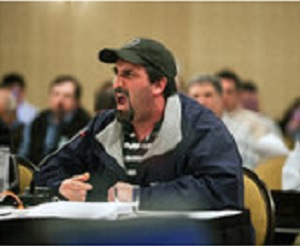
Letter: Federal fishing actions an outrage to all, not just the fisherman – Sam Frontiero, Gloucester
Listening to Peter Shelley of the Conservation Law Foundation in a recently recorded interview shows the mentality of conservationists and rule makers within our federal government. He states he can understand why fisherman get mad sometimes. He essentially said that, yes, policies make fishermen lose their jobs _ but who cares as long as I still have my paycheck. Everyone should be outraged, not just the fisherman. Read more07:14
Peter Shelley -Conservation Law Foundation – Enviro group urges fishery shutdown
While fishing industry group and federal lawmakers have sought to ease dire new catch limits seen as threatening Gloucester’s and New England’s groundfishery, a leader of at least one prominent environmental group says the limit cu ts of up to 77 percent “did not go far enough. ”In his report, Shelley wrote that “recent assessments showed stocks at the lowest levels and declining rapidly. The fish just aren’t there anymore.” Read more here
ts of up to 77 percent “did not go far enough. ”In his report, Shelley wrote that “recent assessments showed stocks at the lowest levels and declining rapidly. The fish just aren’t there anymore.” Read more here






